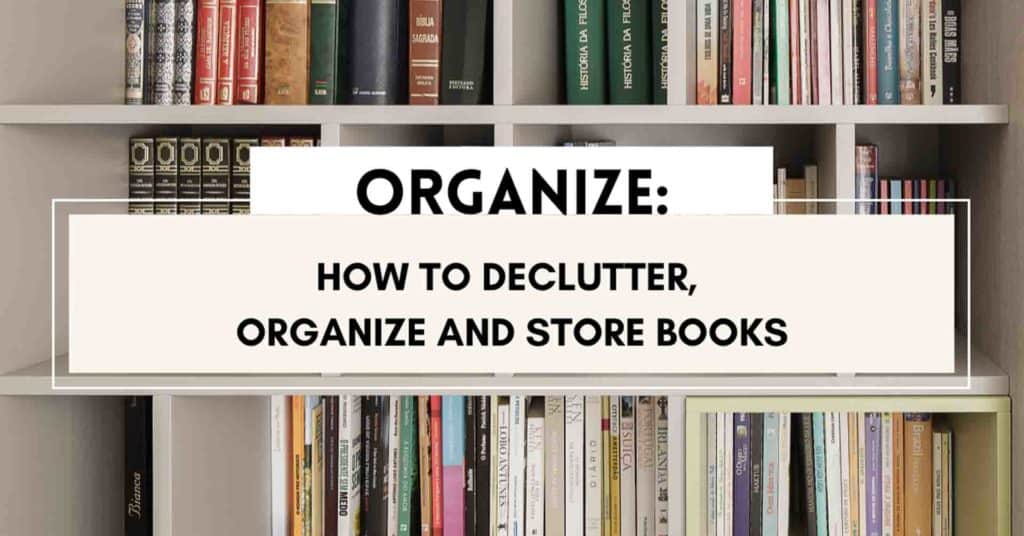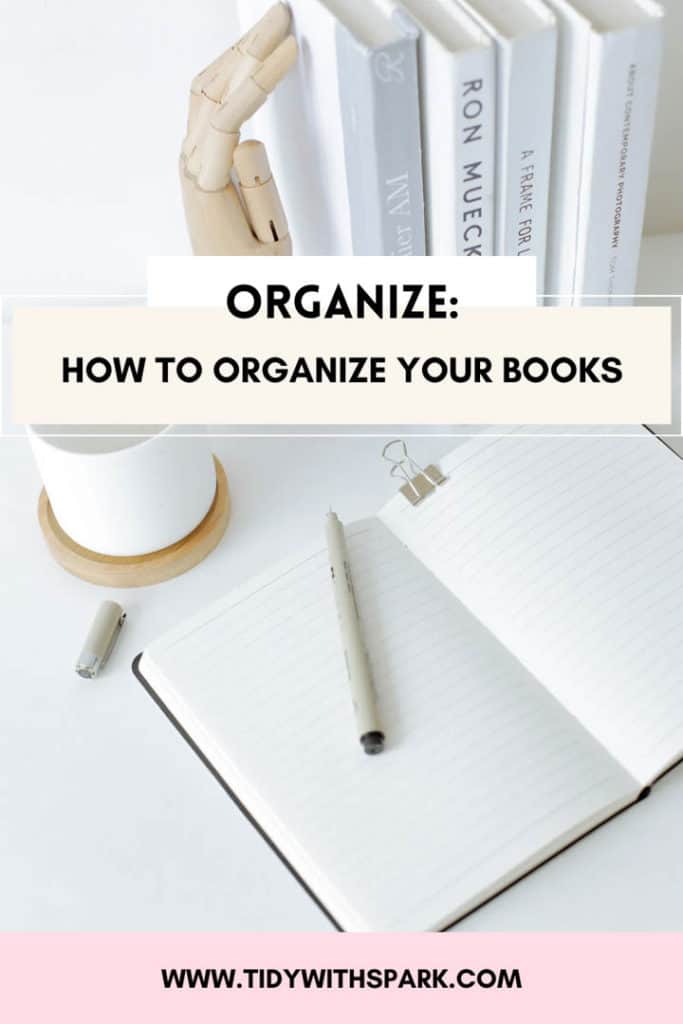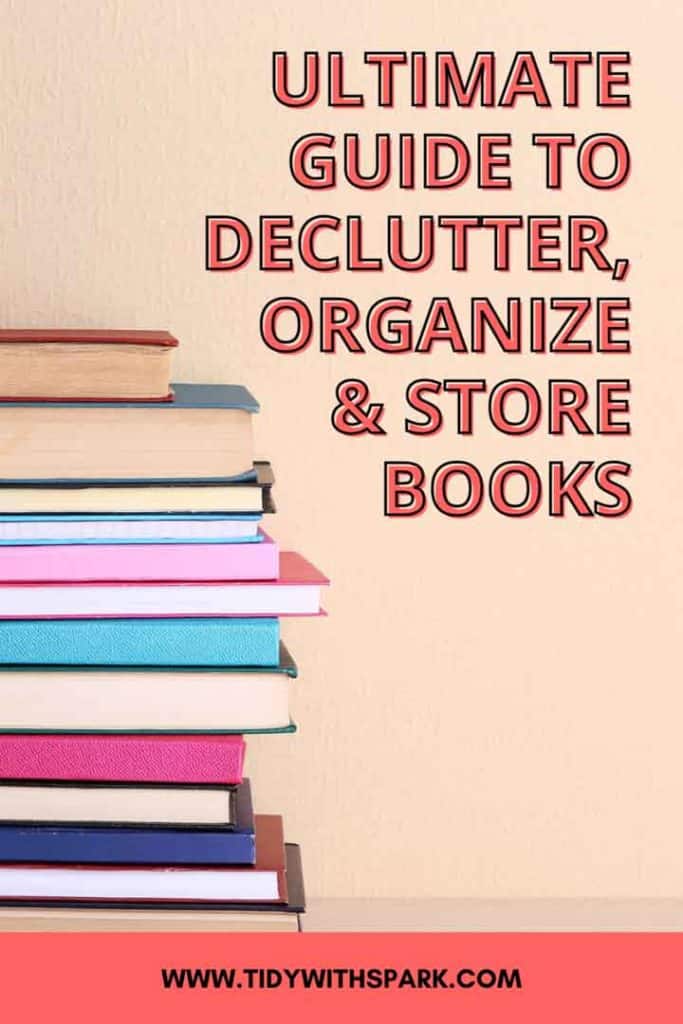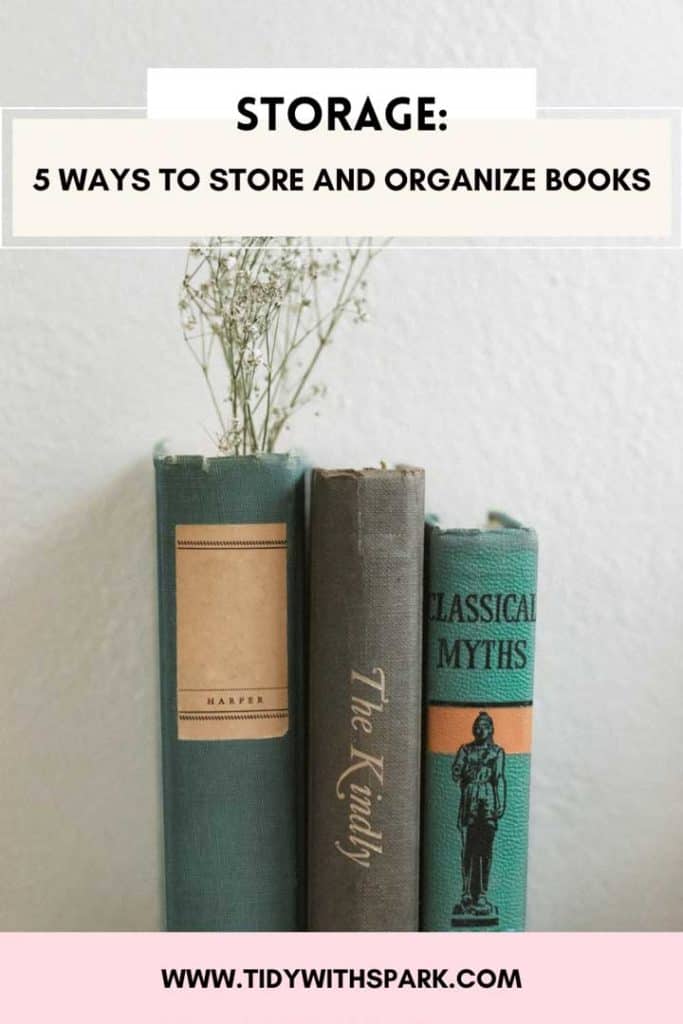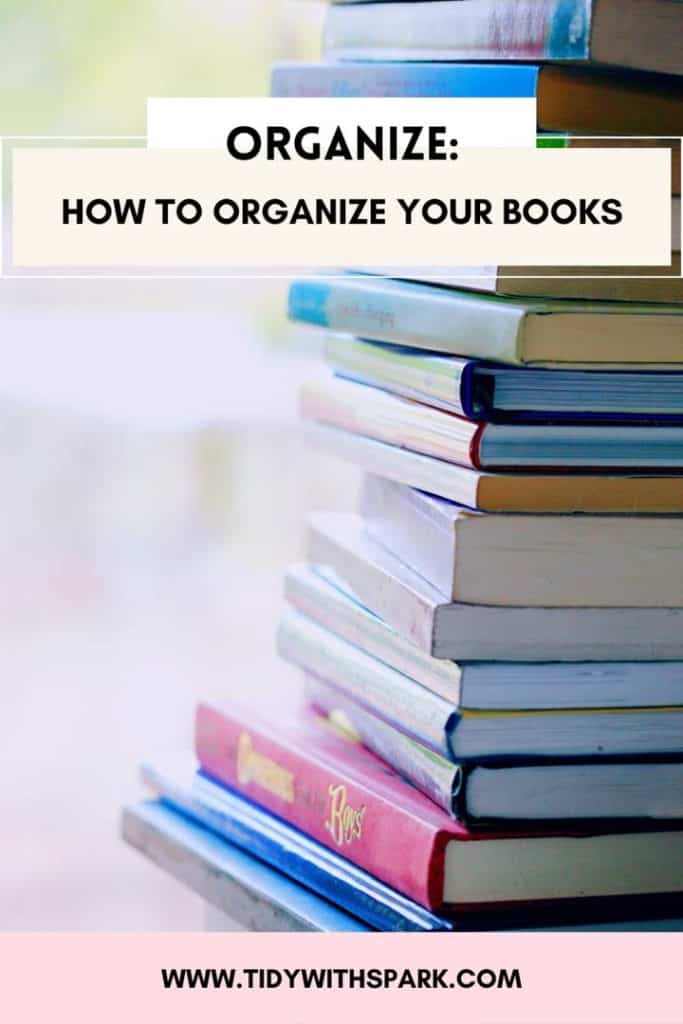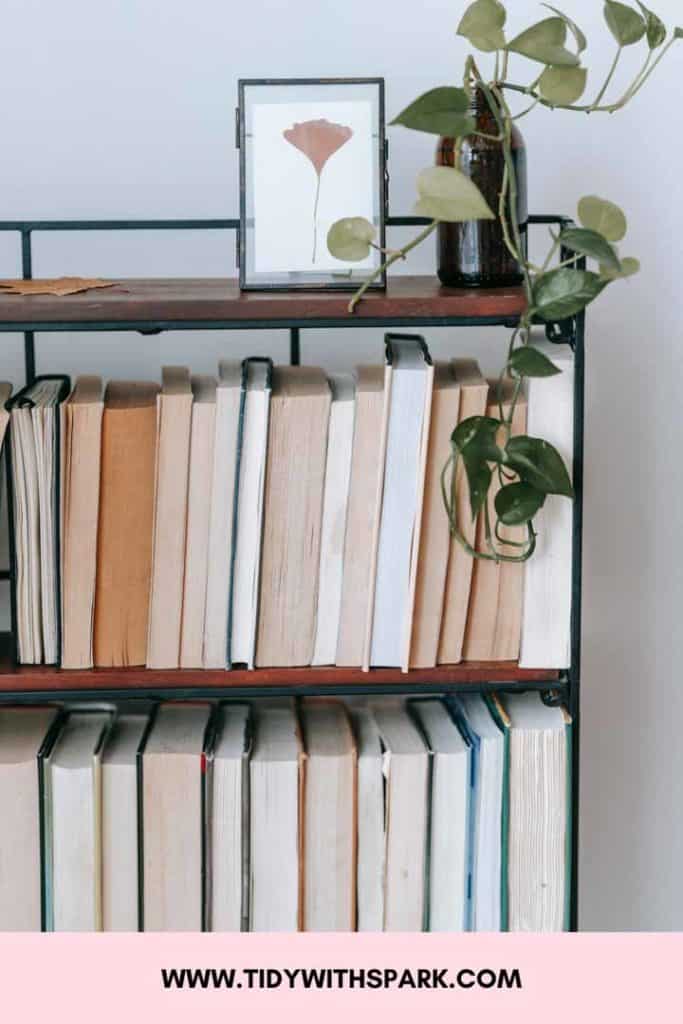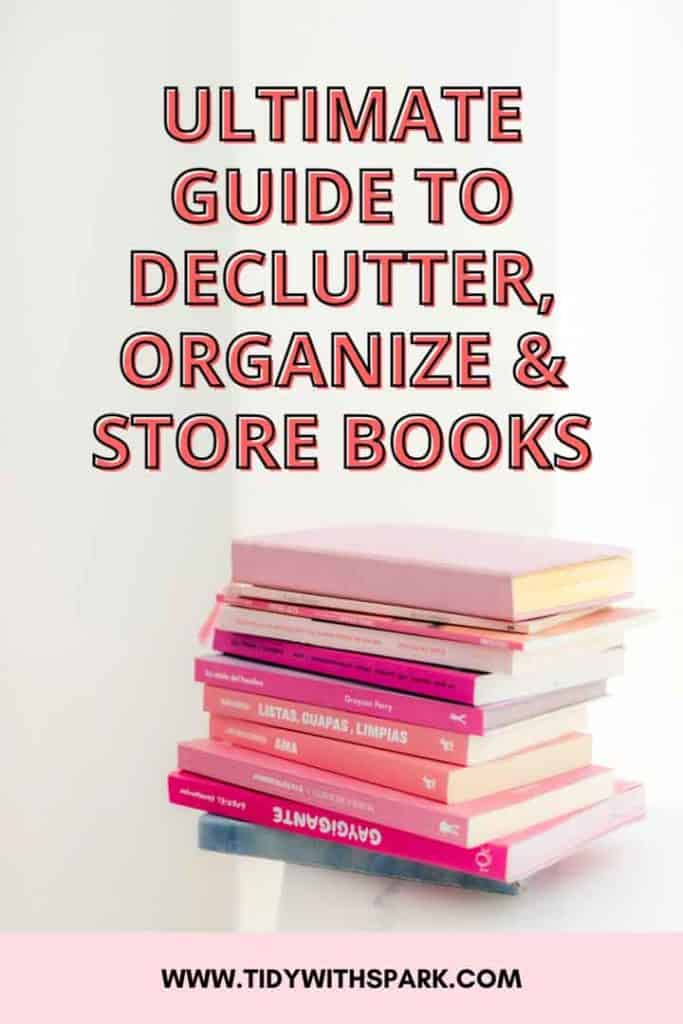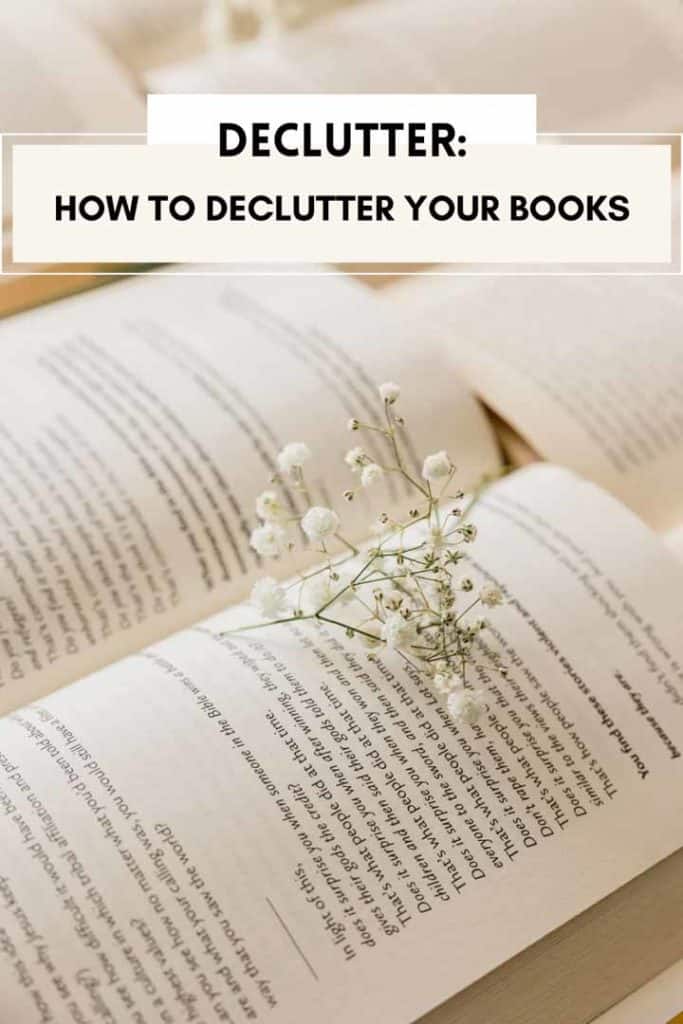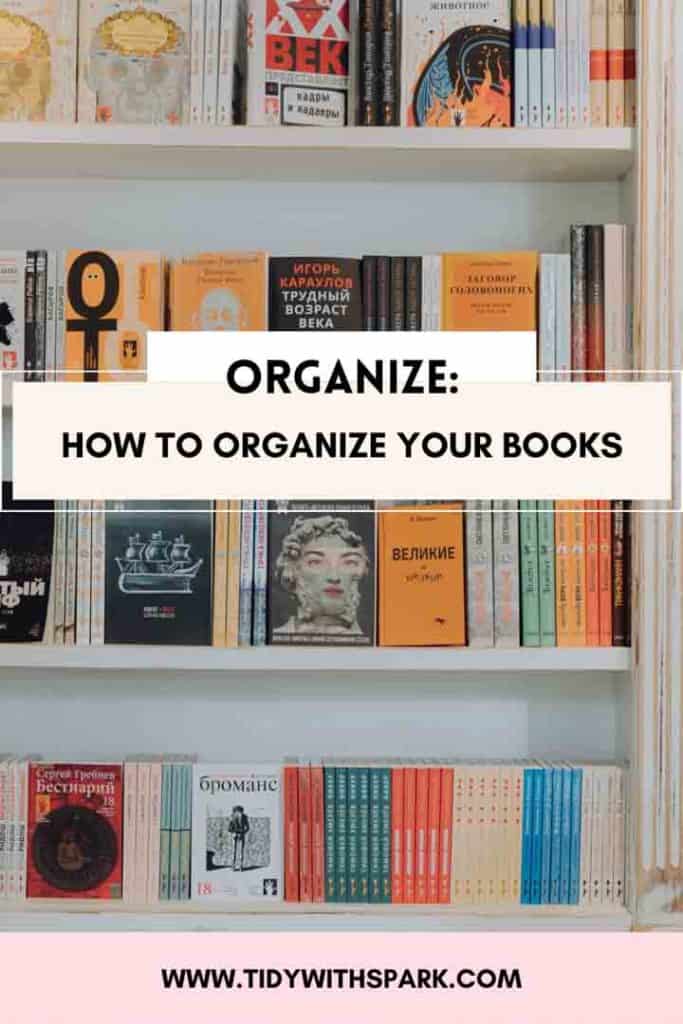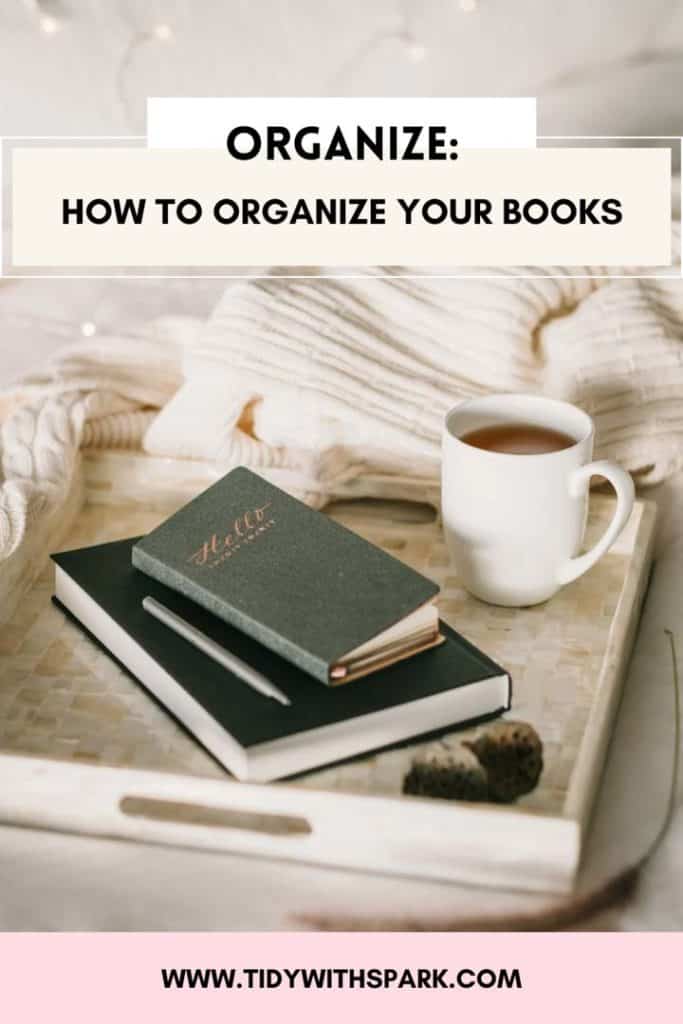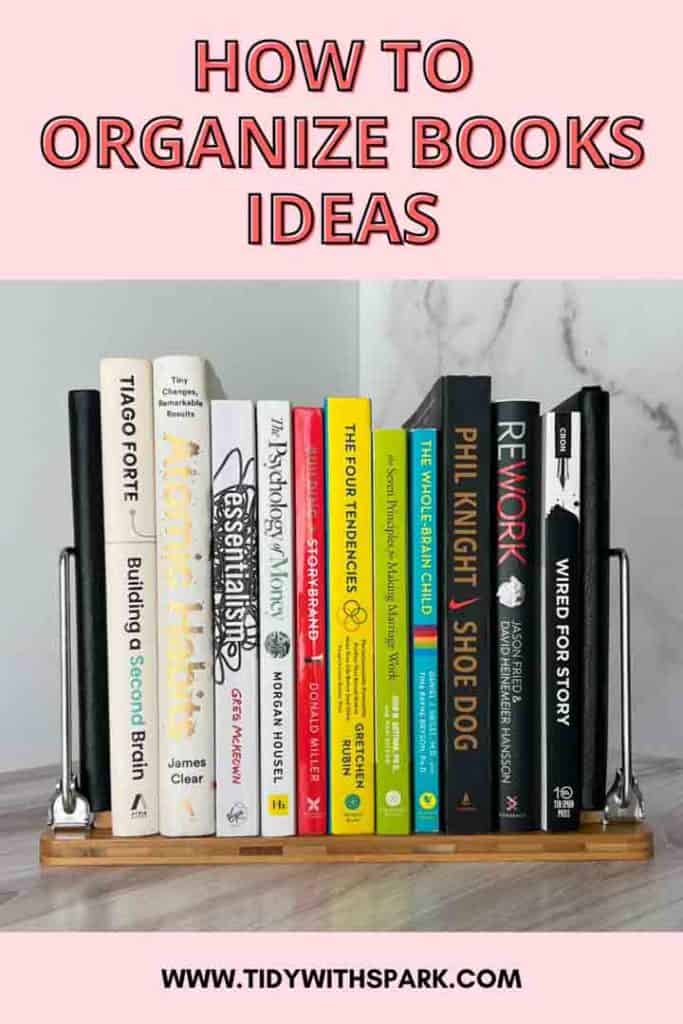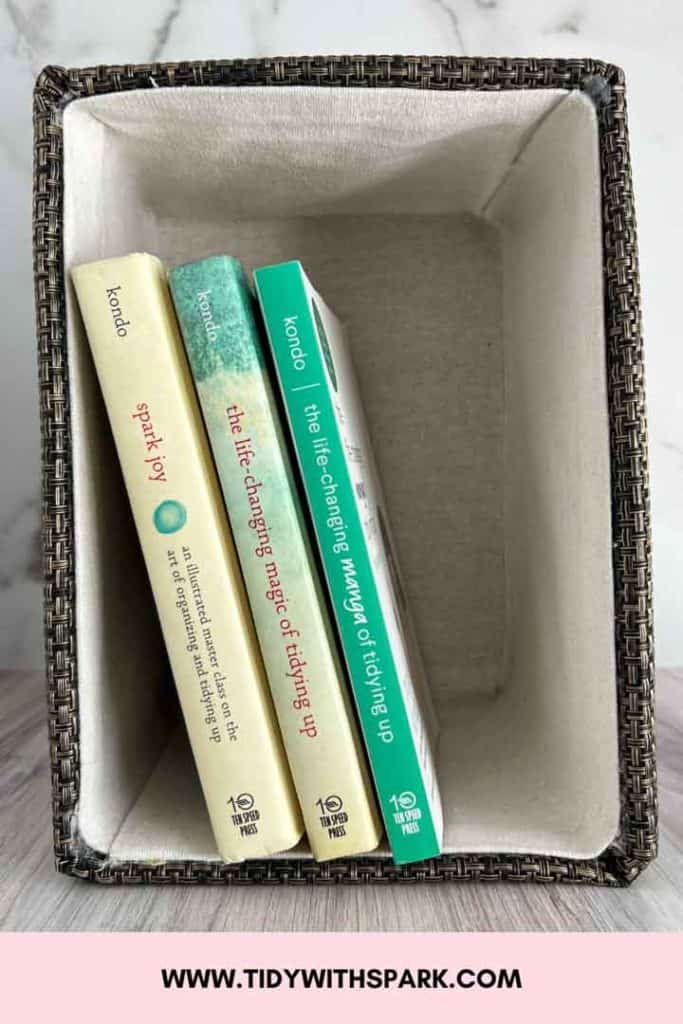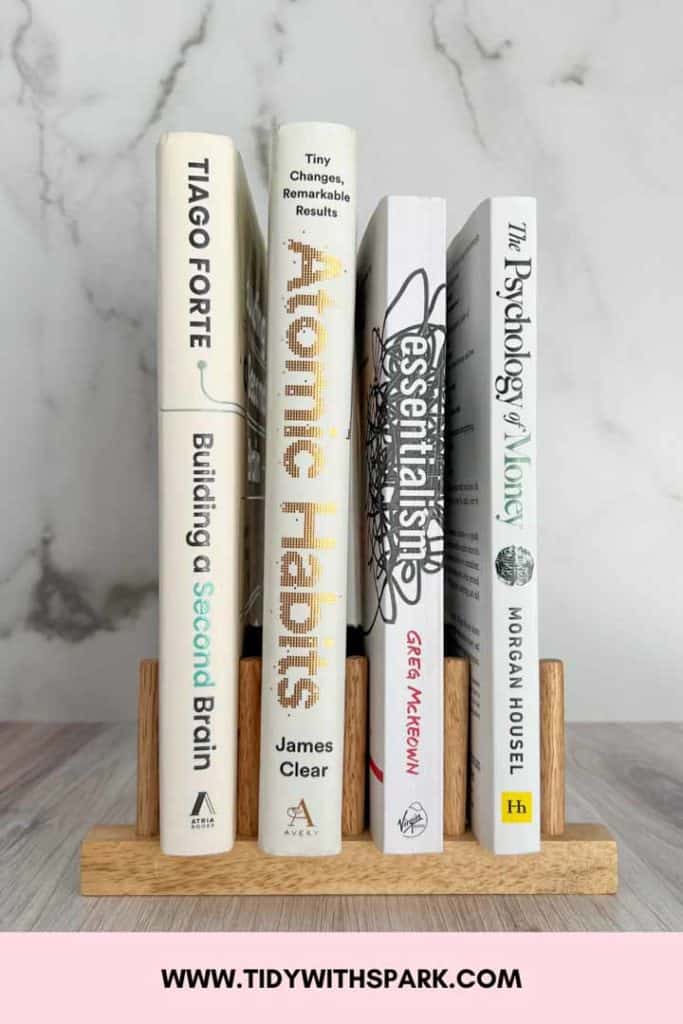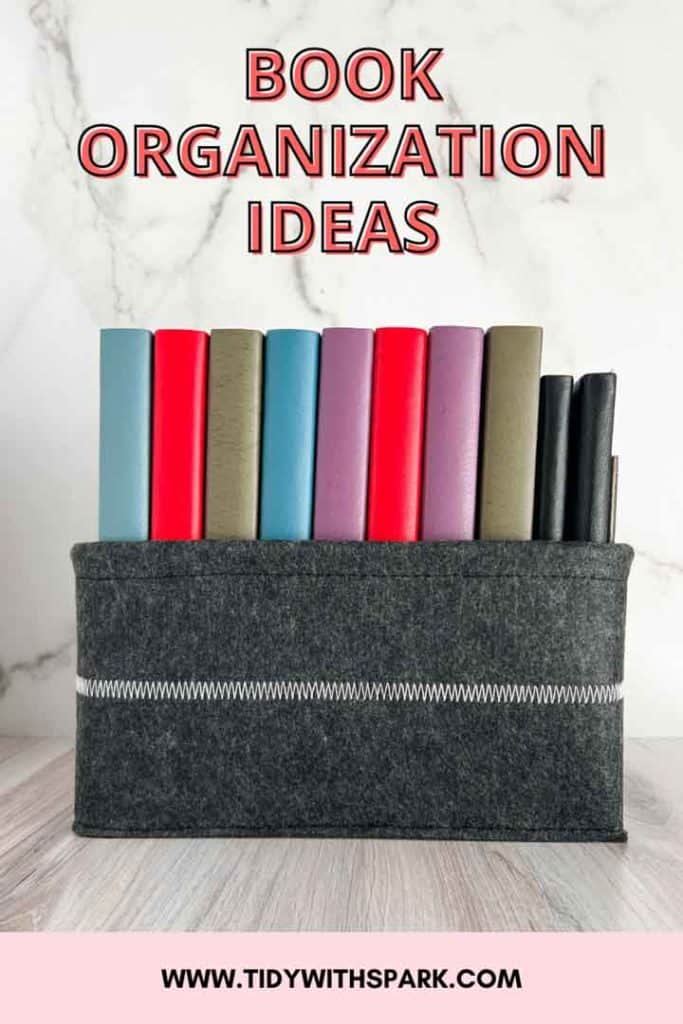How to Organize Books
How to Declutter Books
Maybe you inherited the books from someone who passed?
Or did you buy the books yourself with every intention of reading them, but pushed them aside in favor of doing something else?
Let’s explore how your books became clutter.
Books as Gifts
Books Purchased with Good Intentions
For books that you purchased yourself with the real intent of reading them, but haven’t yet had the chance or gotten around to it, I would suggest you get honest with yourself about the book.
Ask yourself, “Do you want to read it?”
If yes, put a plan of action together to make it happen.
Whether that’s putting a task in your calendar to read a chapter a day or reading the book with a friend or partner as part of book club, make reading the book a project.
Remember, what gets scheduled, gets done.
Thinking you spent good money on it and it would be such a waste to let it go? Isn’t it being wasted already on your shelf not being read by yourself or anyone else?
If you were to declutter it, letting it go to be donated, someone else has a shot at reading it and getting the benefit. Plus, don’t forget there is an actual cost to keeping your books too.
You’re paying money in rent and utilities to store the books in your home.
Keeping the books also requires maintenance.
You must clean them otherwise you invite dust and potentially mold into your home.
Books Started But Unfinished
What about books you started, but just couldn’t finish.
Or maybe you said “I will read it later.”
Later is often a lie we tell ourselves.
We might have the best intentions, but later is code for never.
So stop lying to yourself and stop feeling guilty for what you think you “should” be reading.
You might even have a rule in your head that says you have to finish a book. By the way, you’re not the only one. This is a very common rule.
But why?
Where did this even come from?
Maybe because we hear things like “finish what you started.”
Here’s the thing, it’s okay to not finish the book. And it’s okay to let the book go too. You don’t need my permission, but consider it granted.
Decluttering Questions to Ask Yourself
To recap, simplify decluttering your books by asking these three questions:
- What internal rules do I have related to books?
- What do I stand to gain or lose by keeping the books?
- What do I stand to gain or lose by letting the books go?
How to Organize Books
Now that you have decluttered your books let’s take a look at what is left and how you can organize them to help you take action.
- Organize by genre or subject
- Organize alphabetically by author
- Organize by color
- Organize with hidden spine
Organize by Genre or Subject
You’ll find that your neighborhood bookstore is organized in this manner.
There are different sections of the store, by genre or subject and then within the section all the books are organized alphabetically by author.
At home you might sort by genre and subject and then by height or color.
If you have the luxury of space with lots of storage on a bookshelf, you could also organize your books according to genre by sectioning off the bookshelf by themes and subjects.
Organize Alphabetically by Author
Organize by Color
Organize with Hidden Spine
How to Store Books
Before we get into the storage ideas, first think about why you have books.
Are they for
- education,
- knowledge,
- decor
- or a combination of all these.
Books for Knowledge and Research
How to Organize Books Without a Bookshelf
Store Books in Bin
Store Books in Upside Down Shelf
Store Books on Plate Stand
Store Books in Box Lid
Conclusion
Tackling the task out of order can lead you down the wrong path towards frustration and overwhelm.
Southern California based Professional Organizer, Sandy Park, owner and founder of Tidy with SPARK shares her joy of organization with her clients.
She serves clients in Orange County as well as the hundreds of thousands of followers on her combined social media platforms.
Connect with Sandy through her website or by connecting through her social channels.
